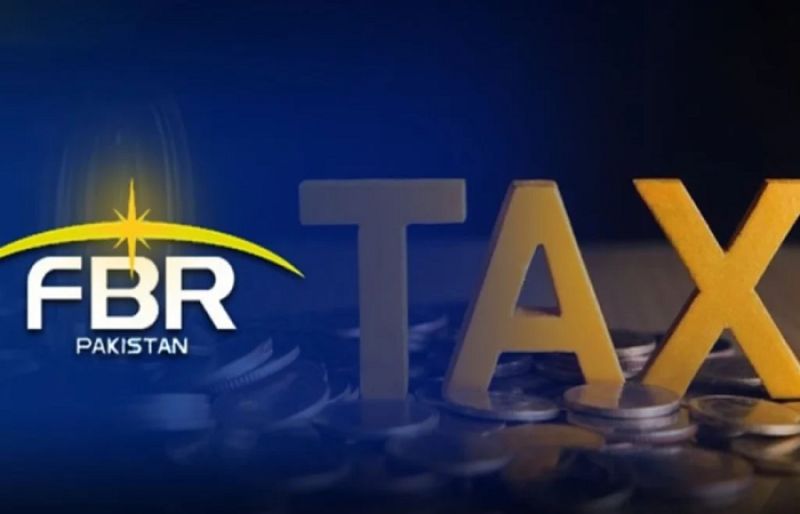Business
FICCI Flags Tax And Customs As Key Demands From Union Budget 2026-27

New Delhi: The Federation of Indian Chambers of Commerce and Industry (FICCI) has set out its key expectations from the Union Budget 2026-27, calling for faster tax appeals, simpler TDS rules, clarity for cross-border supply chains and targeted customs facilitation to cut delays and disputes.
FICCI calls for immediate steps to reduce a large backlog of appeals before the Commissioners of Income Tax (Appeals), saying pending cases and blocked refunds strain taxpayers and the system according to a press release.
It recommends filling vacancies, setting differentiated, time-bound targets for small and complex cases, enabling virtual hearings on a fixed schedule, and granting stays on recovery if an appeal crosses two years without taxpayer fault. It also urges better coordination between faceless units and jurisdictional officers on remand reports, and proposes sharing draft orders with appellants to correct factual errors early.
On cash flow pressure during disputes, FICCI has asked that the current expectation of a 20 per cent deposit for a stay be rationalised. It proposes real-time integration of stay orders with the Central Processing Centre (CPC) to stop automatic refund adjustments against stayed demands and suggests allowing bank guarantees or indemnities as alternate security, with safeguards and monitoring.
To lower compliance burden, FICCI proposed a simpler TDS framework: slab-based TDS for salaries, maximum marginal rate for lotteries and online games, and only two standard rates for other payments. It suggests exempting B2B payments already reported under GST from TDS, removing low-yield TDS/TCS on purchase or sale of goods, and publishing a negative list covering items such as payments to senior citizens, exempt incomes, banks and registered GST entities.
For manufacturing supply chains, FICCI requests explicit assurance that storing components or deploying free-of-cost equipment in India for just-in-time production by contract manufacturers does not create a “business connection” for non-residents under the Income-tax Acts of 1961 and 2025. It says this clarity would support technology deployment and competitiveness while limiting unintended tax exposure and litigation.
FICCI also sought for restoration in the new Income-tax Act, the earlier definition of “Associated Enterprise” to avoid widening transfer pricing coverage to commercially unrelated parties, which could trigger fresh disputes for lenders, contract manufacturers, and brand owners.
On capital distribution, the chamber has recommended aligning taxation of buybacks with capital reduction at least where buybacks use share premium or fresh issue proceeds, noting that treating the full consideration as a dividend can tax capital rather than profits. It has also asked for clarity on interaction with anti-abuse provisions and treaty treatment to prevent inconsistent field practices.
For customs, FICCI has urged more benches of the Customs Authority for Advance Rulings beyond New Delhi and Mumbai to serve the south and east, and a mechanism to extend rulings when facts and law remain unchanged. It has recommended allowing newly incorporated companies in groups already accredited under the Authorised Economic Operator programme, domestically or abroad, to apply for AEO status, and to continue Tier-II status post-merger through simple intimation. It has further called for a single, real-time national database of trade notices to ensure uniform practices across ports.
FICCI stated that these measures would ease working capital stress, reduce litigation, and improve investor predictability as the government prepares the 2026-27 Budget.
Business
Investors suffer a big blow, Bitcoin price suddenly drops – SUCH TV

After the drop in gold price, Bitcoin price also fell.
Bitcoin fell below $77,000 in the global market, Bitcoin price fell by more than 13% in a week.
Bitcoin’s highest price in 6 months fell below $126,000, Bitcoin price has dropped by more than $49,000.
Business
Post-Budget Session: Bulls Push Sensex Up By Over 900 Points, Nifty Reclaims 25,000

Last Updated:
The BSE Sensex is trading higher by 371 points, or 0.47%, at 81,090.24, while the NSE Nifty rises by 70 points to trade above 24,850 at 24,889.25.

Stock Market Today.
Market Updates Today: A day after the market crash following the Budget’s provision to hike Securities Transaction Tax (STT), the domestic equity market on Monday saw heightened volatility. After opening nearly flat, the NSE Nifty rose to the day’s high, then touched the day’s low before sharply recovering to trade at the day’s high of 25,093.
As of 3:16 pm, the BSE Sensex surged by 932 points, or up 1.13%, to 81,641.87 in the afternoon trade and the NSE Nifty rose by 267 points, or up 1.07%, to trade above 25,000 at 25,093.27. After opening nearly flat, the NSE Nifty rose to the day’s high, then touched the day’s low before sharply recovering to trade at the day’s high of 25,093.27.
Among the 30 Sensex shares, 25 stocks were trading in the green. Among the top gainers were PowerGrid, Adani Ports, BEL, Reliance, Mahindra & Mahindra, Larsen & Toubro, and IndiGo, rising by up to 7.91%. The laggards were Axis Bank, Infosys, Titan, TCS, and Trent, falling by up to 1.97%.
After opening nearly flat, at around 9:30 am, the BSE Sensex jumped by 350 points to 81,112.03 in the opening trade, while the NSE Nifty rose 91 points to trade above the 24,900 level at 24,910.85. However, the benchmarks gave up all gains and declined to day’s low amid heavy volatility.
Aakash Shah, technical research analyst at Choice Equity Broking Private Ltd, said, “Near-term sentiment remains cautious despite some support from domestic technical indicators. The broader market direction will largely be influenced by global equity cues, crude oil price movements, and institutional fund flows.”
On Sunday, the Nifty saw an aggressive sell-off after the Budget 2026 announcement to hike STT, plunging nearly 870 points from 25,440 to an intraday low of 24,571, before staging a partial recovery to close at 24,825.
“A strong bearish candle was formed, with the index closing decisively below the 200-day EMA, indicating a deterioration in trend strength. Immediate resistance is placed at 24,950–25,000, while key support lies in the 24,650-24,700 zone. The RSI slipped to 31, reflecting oversold conditions, while India VIX surged 10.73% to 15.09, highlighting elevated market volatility,” Shah said.
On Sunday, February 1, foreign institutional investors (FIIs) sold equities worth Rs 588 crore, while domestic institutional investors (DIIs) also remained net sellers, offloading shares worth Rs 682 crore, adding to the pressure on the market.
V K Vijayakumar, chief investment strategist at Geojit Investments Ltd, said, “Yesterday’s market selloff resulting in 495 point crash in Nifty was a knee-jerk reaction to the sharp increase in STT on F&O trades. This was not a revenue-raising measure, but a decision to discourage retail traders from complex F&O trading, in which 92% of them were losing money. This decision is in the interest of retail investors. But this decision impacted the market sentiments, which were already impacted by the decision to make no changes in the LTCGs tax, which a section of the market was expecting rather unrealistically.”
It is important to understand that the Budget is a growth-oriented Budget with fiscal prudence. The 10% nominal GDP growth projected in the Budget is achievable and has the potential to deliver around 15% earnings growth in FY27. The market will soon start discounting this positive. But it is possible that FIIs may continue to sell impacting the market. Retail investors should keep their cool and remain invested and continue to invest systematically. A significant upturn in the market may take time; perhaps a retreat from AI trade globally. We don’t know when this will happen. But we know that an earnings rebound is imminent in response to this growth oriented Budget. That is a clear positive, he added.
February 02, 2026, 09:34 IST
Read More
Business
Gold prices fall sharply locally and internationally – SUCH TV

Gold prices have fallen significantly in both local and international markets, with 10 grams now priced at Rs18,433 and a tola at Rs21,500.
The price per tola fell below Rs22,000, reaching Rs21,500, while 10 grams dropped to Rs18,433.
Internationally, gold also saw a decline, with prices falling by 215 dollars to 4,676 dollars per ounce.
-

 Sports6 days ago
Sports6 days agoPSL 11: Local players’ category renewals unveiled ahead of auction
-

 Entertainment6 days ago
Entertainment6 days agoClaire Danes reveals how she reacted to pregnancy at 44
-

 Business6 days ago
Business6 days agoBanking services disrupted as bank employees go on nationwide strike demanding five-day work week
-

 Tech1 week ago
Tech1 week agoICE Asks Companies About ‘Ad Tech and Big Data’ Tools It Could Use in Investigations
-

 Fashion1 week ago
Fashion1 week agoSpain’s apparel imports up 7.10% in Jan-Oct as sourcing realigns
-

 Sports6 days ago
Sports6 days agoCollege football’s top 100 games of the 2025 season
-

 Politics1 week ago
Politics1 week agoFresh protests after man shot dead in Minneapolis operation
-

 Politics6 days ago
Politics6 days agoTrump vows to ‘de-escalate’ after Minneapolis shootings












